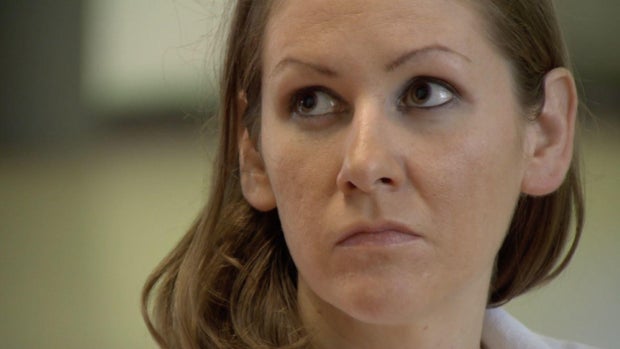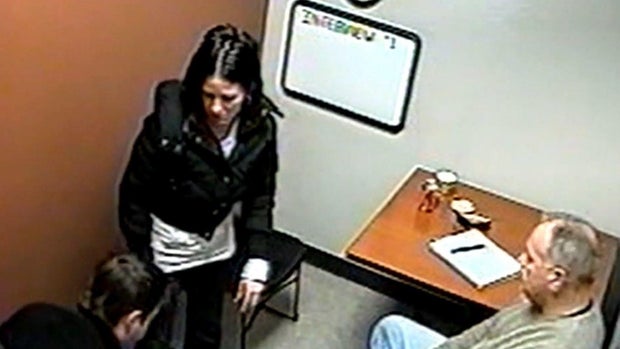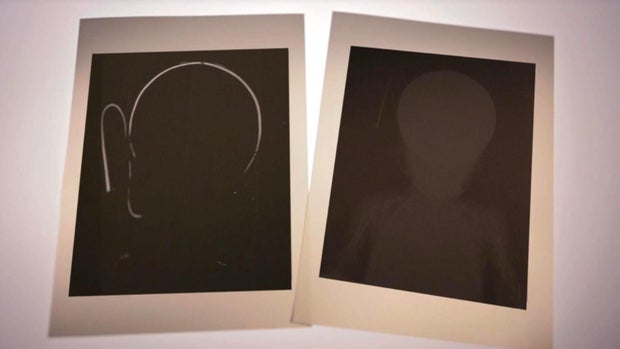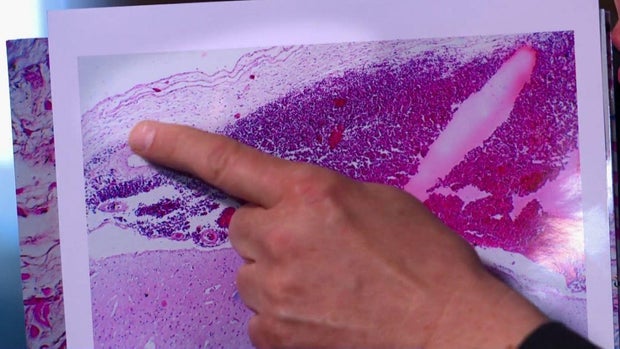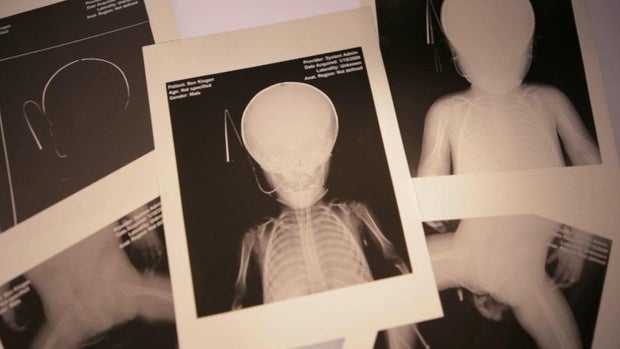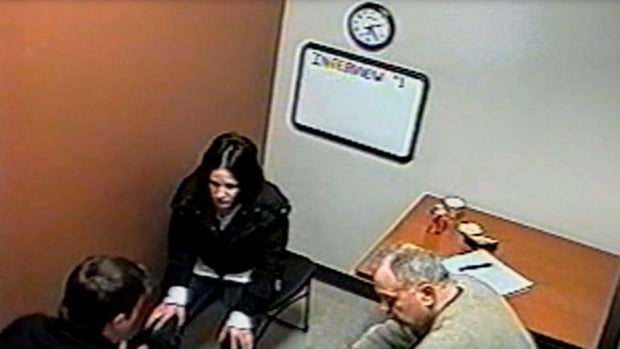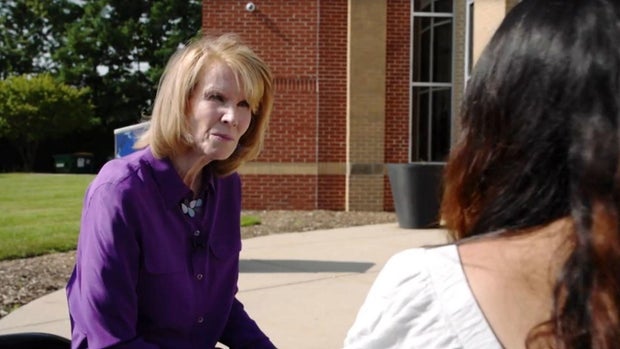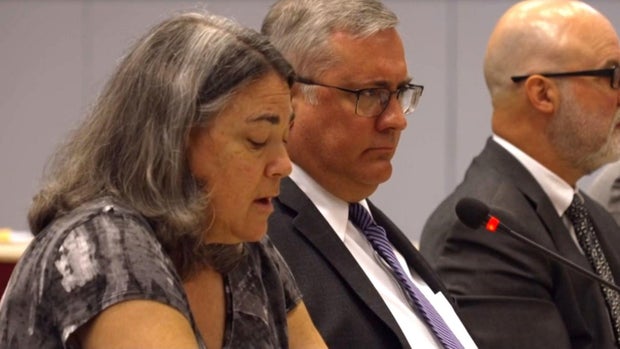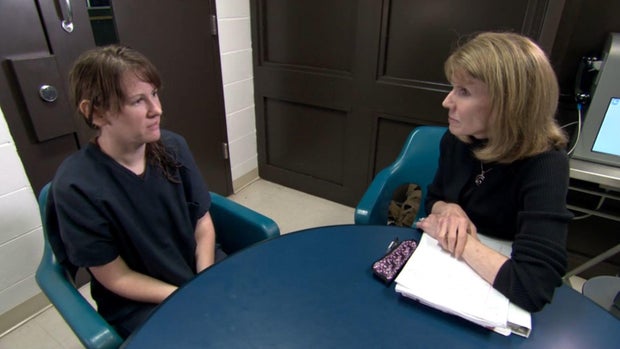Illinois
Illinois Gaming Board voting on license for temporary Bally’s Casino today

Watch CBS News
Be the first to know
Get browser notifications for breaking news, live events, and exclusive reporting.

Illinois
Allegations of a forced confession, manipulated evidence fuel Illinois day care worker’s push for clemency
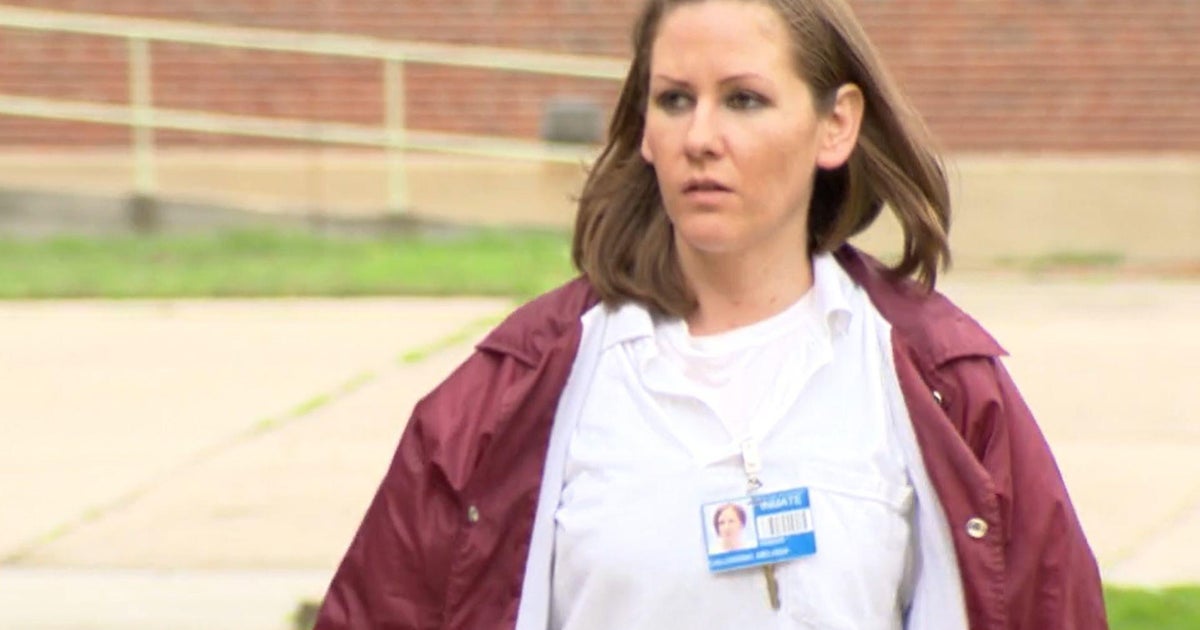
Melissa Calusinski has served 16 years of a 31-year prison sentence for the death of Benjamin Kingan, a 16-month-old whom she cared for at an Illinois day care center. She has long insisted she is innocent.
“This is not where I belong,” Calusinski told “48 Hours” correspondent Erin Moriarty. “I’m gonna continue to fight no matter what ’cause I did not do this.”
“48 Hours” has been covering this case for more than a decade, and over the years, Melissa’s appeals have failed. But she and her attorney, Kathleen Zellner, are not backing down. Now, they are taking their fight out of the court system and straight to the governor of Illinois, J.B. Pritzker, and his prisoner review board.
“We’re asking them to declare that she’s actually innocent and release her. We are also saying commute her sentence,” said Zellner.
THE DEATH OF BENJAMIN KINGAN
The story began on Jan. 14, 2009. Melissa, then 22, was working as a teacher’s assistant at the Minee Subee day care in Lincolnshire, an affluent suburb of Chicago. Ben Kingan attended day care there along with his twin sister and their two older siblings.
Melissa Calusinski (2014): I came to work … And I saw Ben. He was fine, normal, happy, playful.
Late that afternoon, after the kids were fed a snack and cleaned up, Melissa says she put Ben down on the carpet and he crawled into his bouncy seat on the floor.
Melissa Calusinski (2014): He’s sittin’ in his bouncy chair, playing with his blanket. … And he was — startin’ to kinda fall asleep, which was normal.
The teacher working with Melissa stepped out of the room briefly, leaving Melissa alone with the children. That’s when Melissa says she noticed something wrong with Ben.
Melissa Calusinski (2014): He didn’t look right. … I took his little hand, and I touched his hand and I’m like, “Ben, Ben.” He did not wake up at all. … I saw orange foam … coming out of his nose, and—um I’m sorry (cries).
Melissa called for help. Her older sister, Crystal Calusinski, also worked at the day care at the time.
Crystal Calusinski: I hear … on the intercom, “someone help me, help me, help me.” … I ran in … then started CPR immediately.
Erin Moriarty: What was that like for you Crystal?
Crystal Calusinski: I dream about it a lot. (Emotional) … Like, I see it in my, you know, my head.
911 was called.
BETH KATZ TO 911: I have a child who was—uh, who’s foaming, who’s not breathing.
Paramedics responded. Ben was taken to the hospital. He was pronounced dead an hour later.
Melissa Calusinski (2014): Me and my sister fell to the floor and were just — were just bawling. … What happened to him and how? I don’t — I don’t understand.
An investigation was launched. According to the police report, during an autopsy, the pathologist, Dr. Eupil Choi, told a detective that he observed a skull fracture, extensive bleeding inside Ben’s head, and that the injury “was caused by another person,” using “strong force,” “within hours prior to” Ben’s death. And yet, Ben had no cuts or obvious wounds on the outside of his body, no serious bruises. The pathologist listed the autopsy as “pending further studies.” Police brought in the day care workers who had been with the toddler on the day of his death determined to find out what happened to Ben.
DETECTIVE (to Crystal Calusinski): Somebody did something to him.
After Melissa was read her rights, detectives began pressing her for answers.
DET. SEAN CURRAN (interrogation): I have a good idea that you’ve seen what happened or you were involved with what happened ’cause you were the only one in the room at the onset of this.
Melissa denied over and over again — more than 60 times — doing anything to Ben.
MELISSA CALUSINSKI (interrogation): I never put my hands on him… (crying) … I did not drop him.
But the detectives didn’t stop.
DET. GEORGE FILENKO (interrogation): You’re there. It’s not like there were 50 people in that room with you …
All these years later, Melissa still remembers what it was like being in that room.
Melissa Calusinski: They weren’t listening to anything I said.
After nine hours — under pressure and without an attorney — Melissa changed her story. She says she thought if she told the investigators what they wanted to hear, they would let her go home.
DET. GEORGE FILENKO (interrogation): … We’re not going anywhere until we get the facts here.
Melissa Calusinski: The only way for me to get out was to make a confession, a false confession … I wasn’t thinking at all.
Erin Moriarty: You weren’t thinking of the consequences of doing something like that?
Melissa Calusinski: No. No. … All I could think about was just going home …
DET. SEAN CURRAN (interrogation): He starts acting up. And you get mad at him, and you throw him on the floor.
MELISSA CALUSINSKI: (nods)
DET. GEORGE FILENKO: You threw him on the floor?
MELISSA CALUSINSKI: Yeah … Really hard.
When Melissa was taken to another station for booking, she repeated the same story to another investigator.
MELISSA CALUSINSKI (interrogation): I went like that. (Throws doll down)
After spending 14 hours with police, Melissa Calusinski was arrested for the murder of Benjamin Kingan even though she almost immediately took back the story she told police.
MELISSA CALUSINSKI (in police car): No, I’m innocent.
Melissa’s parents, Paul, and Cheryl Calusinski, still remember receiving the news.
Paul Calusinski: And I said, “what?”
Erin Moriarty: Did you think possibly she had hurt this baby?
Paul Calusinski: Not at all.
Cheryl Calusinski: No.
Paul Calusinski: Nope.
Cheryl Calusinski: Nope. … She is the kind of person that would never —
Paul Calusinski: — harm anybody.
Cheryl Calusinski: — never put her hand on someone else’s child.
But Melissa had told investigators that she did, and after that, the manner of death on Ben’s death certificate was listed as “homicide.” Law enforcement announced they had solved the case.
DETECTIVE ADAM HYDE (to reporters): Miss Calusinski admitted to police that she had taken the infant boy and thrown him on the ground
Crystal Calusinski: They made her look like a bad person. … And she’s not that type of a person.
Melissa’s family would make it their mission to clear her name.
Crystal Calusinski: My parents sold everything that they had …
Paul Calusinski: I … put all my effort into getting her free …
They had no idea how much of a fight they were in for.
QUESTIONING THE EVIDENCE
Stephen Scheller (2014): He was a very … healthy baby. … Just a happy, happy little boy.
In November 2011, nearly three years after the death of Ben Kingan, Melissa Calusinski went on trial for murder. The State argued that Ben was a perfectly healthy toddler leading up to his death. Matthew DeMartini and Stephen Scheller prosecuted the case.
Erin Moriarty (2014): How would you describe what the parents have gone through?
Matthew DeMartini (2014): When somebody takes your child from you, I don’t think there’s any words to describe what they’ve gone through.
Dr. Choi, the pathologist who conducted the autopsy, testified about that skull fracture he said he had seen, and how he believed the child’s injury was recent — and consistent with having been thrown to the floor by someone. But Melissa’s trial attorney, Paul De Luca, told the jury about a head injury Ben had previously received. It was noticed at the day care three months earlier.
Paul De Luca: Melissa was not even working there at the day care center.
After Ben’s death, multiple people — including day care teacher Nancy Kallinger — told investigators about it.
NANCY KALLINGER (police questioning): He got a bump on the back of his head … I mean, we called the mom, the mom called the doctor.
But prosecutor Scheller argued that the earlier injury was insignificant.
Stephen Scheller (2014): The pediatrician actually examined Benjamin’s head, had felt around, um, said there was no issues … that mom should just keep an eye on him. … Ben never had an issue after that.
That’s not what defense experts said. They noted that after the injury, there were possible signs of head trauma. Medical records showed that in the days after the injury, Ben was lethargic and had a persistent fever. And another day care employee, Holly, who asked that we identify her by her first name only, testified for the defense about the last time she saw Ben two days before his death.
Holly: Melissa walked into the room … and she was holding Ben … And she said, like, he’s not feeling well. And it was almost immediately after she said that, that he threw up, like, everywhere.
The next day, one day before he died, Ben was kept home from day care. Prosecutor Matthew DeMartini argued it was a stomach bug or a winter cold.
Matthew DeMartini (2014): He was given Pedialyte and put to bed. He woke up the next day and he was fine.
But the defense maintained that Ben’s prior injury was so serious that any new impact could have had major consequences, and Ben did have a habit of throwing his head back.
Holly: He would be sitting on the ground, and he would just kind of lunge his body backwards and hit his head … You know, I guess you’d call it like he was a head banger.
Nancy Kallinger recalled that Ben had done that twice on the day of his death.
NANCY KALLINGER (police questioning): I put him on the floor, and he immediately threw himself on the floor. … And then I walked towards the sink, and he threw himself again.
Prosecutors insisted that Melissa had hurt Ben.
Stephen Scheller (2014): This child did not explode or implode on his own.
And they pointed to her confession.
Stephen Scheller (2014): She became frustrated holding Ben. She threw him to the floor.
Prosecutors told the jury that the fall was so severe it caused that skull fracture. At trial, they mentioned a “skull fracture” more than 30 times. But was there one? While most of the experts who testified from both sides agreed there appeared to be a fracture in autopsy photos — one defense expert said she couldn’t say for sure. And according to Melissa’s attorney, Paul De Luca, the X-rays the prosecution had provided before the trial were unreadable.
Paul De Luca: Before trial, I said, do we have any better images? And it was no.
The State’s final witness, pathologist Dr. Manny Montez, gave the most vivid and damaging testimony at trial. He said he examined the body and felt the fracture with his bare hands.
Paul De Luca: Dr. Montez said he put his finger … in the skull and through the fracture. … I mean, it was devastating.
The jury deliberated for seven hours before convicting Melissa Calusinski of aggravated battery of a child—and first-degree murder.
Melissa Calusinski: My heart sunk. … I know I didn’t do this.
Melissa’s family remained determined to prove her innocence.
Paul Calusinski: I didn’t accept the verdict. I knew it was wrong.
In 2012, a year after the conviction, Dr. Thomas Rudd — the then-newly elected Lake County Coroner — agreed to review the autopsy evidence at the urging of Melissa’s trial attorney.
Rudd spoke with “48 Hours” about the case in 2014.
Dr. Thomas Rudd: I saw a membrane and I thought, “my God.”
Erin Moriarty: What do you mean when you say you saw a membrane?
Dr. Thomas Rudd: You see a scab. Similar to what forms on your skin, except it’s in the brain. …
Erin Moriarty: This is a slide of a part of this infant’s brain?
Dr. Thomas Rudd: Correct…. By definition, if you have a membrane, you have an old injury.
At Melissa’s trial, Choi had told the jury he observed no sign of an old injury. But according to Rudd, Dr. Choi had simply missed it. He called in Dr. Nancy Jones, a well-regarded pathologist, for a second opinion. And she agreed with Rudd and noted that the old injury had been healing for about two or three months — a time frame consistent with that bump on Ben’s head that was noticed at day care.
Dr. Thomas Rudd: How they let that go is beyond me.
Like the defense experts at trial, doctors Jones and Rudd believed that the old injury was further exacerbated by Ben’s head banging.
Dr. Thomas Rudd: The added fluid of the recent injury … pushes that brain down and shuts down the breathing system. That is the cause of the child’s death. It was the old injury. The old injury was massive.
Rudd phoned the now-retired Choi, who signed a sworn affidavit, conceding that he had “missed that Ben had suffered an old injury.” But he crossed out the word “significant.” And when asked if he would have changed his testimony at trial, Choi said, “no.”
Matthew DeMartini: There’s no indication that anything in there is significant.
But Rudd suspected that Choi may have also been wrong about another major issue in the case: that alleged skull fracture.
Dr. Thomas Rudd: What should have been done was that whole section should have been cut out … to look under the microscope to see if, in fact, it is a skull fracture. … And they didn’t.
Rudd believed what Choi and the other medical experts thought was a skull fracture may have instead been a normal part of Ben’s growing skull, but he couldn’t prove it. Then, in 2015, Melissa’s father said he received an anonymous call that there was a set of X-rays at the coroner’s office that had never been turned over to the defense. When Rudd’s staff searched the computer archives, they came across startling images that were never shown at trial.
Dr. Thomas Rudd: I was dumbfounded. … There’s definitely no skull fracture here.
WERE BEN KINGAN’S X-RAYS MANIPULATED?
Dr. Thomas Rudd (2015): I’ve shown this to various pathologists and a radiologist … They’ve all called me and say, “There is no skull fracture in this child at all.”
In 2015, four years after Melissa Calusinski’s conviction — and shortly after those clear X-rays of Ben Kingan were found — Dr. Rudd changed the manner of death on Ben’s death certificate from “homicide” to “undetermined.” By this point, defense attorney Kathleen Zellner had taken on Melissa’s case.
Kathleen Zellner: I don’t know of a case in America where someone is serving a 31-year prison sentence for a death that was undetermined.
Zellner, who has built a career on getting the wrongfully convicted out of prison, was intent on getting Melissa’s conviction overturned. And in 2016, Melissa was granted an evidentiary hearing to present what Zellner argued was new evidence before Judge Daniel Shanes, the same judge who presided over Melissa’s trial.
Kathleen Zellner: The new evidence was that the images that had been given to Paul De Luca had been darkened.
Remember, the State gave De Luca, Melissa’s trial attorney, a disk containing the dark, unreadable X-rays before trial. At the evidentiary hearing, Rudd testified about finding the clear X-rays — X-rays that he and other defense experts said showed no skull fracture; X-rays that Zellner argued would have changed the outcome of Melissa’s trial.
Kathleen Zellner: The skull fracture … was the pivotal point in the state’s case to … convince the jury it was a homicide …
But at the evidentiary hearing, prosecutors argued that this wasn’t new evidence in the case. They said the disk provided to De Luca had software that could enhance the X-rays and that he simply didn’t do enough to brighten them. De Luca says he couldn’t even open the software.
Paul De Luca: I call in a secretary … I call in somebody else in the office … no one could get any better images.
Zellner, with the help of an imaging expert, argued that it didn’t matter what De Luca did — that the X-rays that he had been given had been modified and were inferior to the ones on the coroner’s office computer. She also called a witness whom she believed raised more questions about the prosecution’s case: Paul Forman, the deputy coroner during Ben Kingan’s autopsies. Forman disputed the testimony of one of the most important witnesses at Melissa’s trial — Dr. Manny Montez. Remember, Montez was the State’s final witness who testified that he felt a fracture in Ben Kingan’s skull.
But Forman, who said he was there when Montez came to the coroner’s office, testified that Montez never physically examined Ben’s body or actually touched the child’s skull.
Erin Moriarty (2016): Could he have somehow gone in and looked at Ben’s body, examined the body without you knowing?
Paul Forman (2016): No, I was with him from the moment he came in the door to the moment he left.
The State tried to discredit Forman by questioning his memory as well as his mental health. Forman told “48 Hours” he had been treated for bipolar disorder and depression.
Paul Forman: Well, it was a personal attack.
But Forman wasn’t the only defense witness who raised questions about Montez’s testimony. Dr. Robert Zimmerman, a renowned pediatric neuroradiologist who examined the readable X-rays, testified that if that skull fracture had existed, it would be clearly visible.
Dr. Robert Zimmerman (outside of courthouse): It wasn’t there on the X-ray, so I don’t think he could’ve actually seen it.
But prosecutors stood by their trial witnesses — doctors Montez and Choi — who said they saw and felt a skull fracture. “48 Hours” reached out to both doctors for this broadcast, but they did not respond to our requests for comment. When the evidentiary hearing ended, Judge Shanes ruled against Melissa.
In his ruling, Judge Shanes stated that he didn’t find Forman’s testimony regarding Montez credible. And he agreed with the State that De Luca could have brightened the X-rays and made them readable. It was another letdown for Melissa and her family.
Melissa Calusinski: You clearly made a mistake. (Crying) … I just don’t understand.
Zellner appealed the ruling, but again, a disappointment. And then, four years later, in 2022, there was a development that few saw coming. Eric Rinehart, a new state’s attorney in Lake County — the county where Melissa was convicted — had taken office. Zellner says he wanted more information on the discrepancy over the X-rays, so he recommended she retain the digital forensics company, Garrett Discovery.
Kathleen Zellner: We paid for them, but he recommended them.
Andrew Garrett is the CEO of Garrett Discovery. Brian Bowman is a digital forensics expert who works for him. They concluded the X-rays were manipulated by someone using a software tool used to view X-rays.
Erin Moriarty: How did Paul De Luca, the defense attorney, end up with these very dark pictures?
Andrew Garrett (at computer with X-ray on monitor): I can show you. So, if I take these sliders here and I drag ’em all the way down or all the way up, you can manipulate this photo. … So, somebody went in, and they altered the contrast to make it look like that on screen, and then exported that file …
Erin Moriarty: On the coroner’s computer?
Andrew Garrett: On the coroner’s computer.
Bowman agrees there was little De Luca could do.
Brian Bowman: The defense counsel could have adjusted some of the contrast on the JPEGs that they were given. But they couldn’t make the images bigger, and they wouldn’t be able to go in and zoom into the depth and have the clarity of the image that the original is.
But if Ben Kingan’s X-rays were manipulated, who did it? In their report, Garrett and Bowman pointed to the State.
Erin Moriarty: You put in here, the State adjusted the settings of the images that resulted in black, washed-out images … You’re saying that either the prosecutor’s office or the coroner’s office, but somebody representing the State did this?
Andrew Garrett: Yes.
Brian Bowman: Yes.
Andrew Garrett: This is not a kiosk computer sitting in a lobby. This is in their custody and control. You have to be in the coroner’s office to get access to this.
WAS MELISSA CALUSINSKI’S CONFESSION COERCED?
In late 2022, when Lake County State’s Attorney Eric Rinehart met with the forensic experts — experts he recommended — and learned of their findings, attorneys Kathleen Zellner and Paul De Luca were also there.
Kathleen Zellner: Eric was just indignant … He was saying, whoever had done this manipulation should be held accountable. … I believed after the meeting … that he believed in Melissa’s innocence, and he was going to try to rectify this.
Paul De Luca: I thought he was gonna do something about it.
But nothing happened, say Zellner and De Luca. And as the months stretched on, Zellner decided to also look more closely at Melissa’s confession.
Kathleen Zellner: That’s the only evidence against her … there’s nothing that tips this as being a homicide. Absolutely nothing.
Zellner asked Dr. Saul Kassin, a psychology professor and leading expert on false confessions, to review the case. Dr. Kassin had first analyzed the interrogation back in 2016, when he was a CBS News consultant. He told us then — and now — that it appears police went into that room determined to get a confession.
DET. SEAN CURRAN (interrogation): The reason that we were called in on this incident is ’cause Ben’s skull was fractured …
DET. SEAN CURRAN: What we need to know right now is if this was done by accident or did somebody intentionally hurt him?
MELISSA CALUSINSKI: Yeah. I — I would never put my hands on him …
Saul Kassin: Her denials were emphatic.
MELISSA CALUSINSKI (interrogation): I never put my hand on a child, ever.
Saul Kassin: … And they plowed over all of them.
DET. GEORGE FILENKO (interrogation): …You know what medical evidence is, it just doesn’t lie, OK?
MELISSA CALUSINSKI: Yeah.
Remember, a detective reported that during the autopsy, the pathologist, Dr. Choi, told him that Ben had a skull fracture, and that the injury was recent and was caused by another person, using strong force.
DET. GEORGE FILENKO (interrogation): They did an autopsy on Ben.
MELISSA CALUSINSKI: Yeah …
DET. GEORGE FILENKO: We’re talking a skull fracture …
DET. SEAN CURRAN: There’s — sometimes accidents happen, and I mean, they’re unavoidable.
Saul Kassin: They launch into an accident scenario.
MELISSA CALUSINSKI (interrogation): …I did not drop him.
DET. SEAN CURRAN: Did you lose your patience and hit him?
MELISSA CALUSINSKI: No.
DET. SEAN CURRAN: Did you push him into a wall?
MELISSA CALUSINSKI: Uh-uh. (shakes her head no)
After nearly six hours with investigators —
DET. GEORGE FILENKO (interrogation): You didn’t come to work that day with the intent of hurting anybody.
— Melissa told them it was an accident.
DET. SEAN CURRAN (interrogation): Did you drop the baby?
MELISSA CALUSINSKI: Yes. … I wasn’t paying attention and he slipped out of my hands …
But that didn’t satisfy the detectives who had left the room periodically to phone Dr. Choi.
DET. SEAN CURRAN (interrogation): …That story you’re giving us is a load of s***…
DET. GEORGE FILENKO: There is no way, no way that that would have caused that traumatic of an injury.
DET. GEORGE FILENKO: All you need to do is tell us the truth and we’re done.
Saul Kassin: They’re not saying nothing will happen to you, but it’s implied.
After nine hours in that room, the investigators were finally getting Melissa to tell a story that could account for a skull fracture.
DET. GEORGE FILENKO (interrogation): You were angry.
MELISSA CALUSINSKI: I was angry and aggravated.
DET. GEORGE FILENKO: Show us how angry you were and show us what happened, and let’s just get this over with and move on.
MELISSA CALUSINSKI: OK. So I got angry.
DET. GEORGE FILENKO: Yeah.
MELISSA CALUSINSKI: And I went, “boom.”
DET. SEAN CURRAN: I — I’m gonna tell you something right now.
MELISSA CALUSINSKI: OK.
DET. SEAN CURRAN: This is very specific.
MELISSA CALUSINSKI: OK.
DET. SEAN CURRAN: This is gonna leave a specific mark.
MELISSA CALUSINSKI: Like a fracture.
Then, they gave Melissa a scenario of why she got angry —
DET. SEAN CURRAN (interrogation): We think in this situation, the other babies are screaming, crying …
— and what she did.
DET. SEAN CURRAN: He starts acting up and, you get mad at him, and you throw him on the floor …
MELISSA CALUSINSKI: (Melissa nods)
DET. GEORGE FILENKO: You threw him on the floor?
MELISSA CALUSINSKI: Yeah.
Saul Kassin: She needs to get out of there. She can’t take it anymore.
MELISSA CALUSINSKI (interrogation): I am so sorry.
DET. GEORGE FILENKO: OK. We understand.
The detectives who interrogated Melissa did not respond to “48 Hours”‘ request for comment. Kassin raises concerns about how long Melissa was in that room—approximately 10 hours—and how particularly vulnerable she was. About two-and-a-half years before Ben Kingan’s death, Melissa had reported she was raped.
Saul Kassin: She was enclosed in a small space, pinned down and sexually assaulted. Now she’s pinned into the corner of a room. … I can only imagine that while this would be normally stressful for the average person, it would be even more stressful for somebody with that history.
The defense recently had Melissa evaluated by a psychologist and psychiatrist. They diagnosed her with post-traumatic stress disorder. They also assessed her as having borderline intellectual functioning. She scored at a 4.8 grade level in sentence comprehension, which could help explain why she believed she could go home — even after she had confessed to murder.
MELISSA CALUSINSKI (interrogation): I’m just kind of curious, how long, much more, ’cause …?
DET. GEORGE FILENKO: Not much longer, we’re on the phone right now. We’re trying to get this done as quickly as possible.
MELISSA CALUSINSKI: Because I just want to go home and spend time with my parents and my puppy.
Saul Kassin: She had no idea what was happening. … The confession, in my mind, is worthless. … There are multiple reasons why she might have given this confession. … This isn’t just a vulnerable suspect. It isn’t just interrogation tactics that are highly deceptive. It’s both.
The jury at Melissa’s trial heard about her low IQ. But the judge would not allow a false confession expert to testify. Zellner believes that testimony might have changed the verdict.
Erin Moriarty: If Melissa Calusinski had not walked into that room, if she had insisted on an attorney, would she be in prison today?
Kathleen Zellner: No, absolutely not. They had absolutely nothing. There’s no eyewitness. There was no video. … The reason Melissa Calusinski got charged is she confessed.
But if Melissa didn’t harm Ben Kingan, what happened to the toddler? It raises more questions about that earlier injury — the one that was discovered at the day care months before his death. Several employees there remembered a co-worker.
CRYSTAL CALUSINSKI (interrogation): She was working there at that — at that time when that happened. Her name is Brenda.
NANCY KALLINGER (interrogation): What I believe, I only heard, I didn’t see anything, is that she put him in the crib, and I believe he threw himself back. … She quit the day after.
Brenda didn’t testify at Melissa’s trial, and the defense was never able to track her down. But “48 Hours” did.
MAKING THE CASE FOR MELISSA’S FREEDOM
Melissa Calusinski was interrogated for hours about the injury Ben Kingan received just before his death. But what about the day care worker who was reported to be with Ben a few months earlier, when he got a lump on his head? She didn’t return “48 Hours”‘ calls. But when we located her, she agreed to speak to us on the condition we obscure her face and identify her only by Brenda, her first name.
Erin Moriarty: On October 27, 2008, there was a report of an injury on Ben Kingan … Do you remember that?
Brenda: No, I don’t.
Erin Moriarty: The way it’s been described is — from some people — is that Ben was with you, and you were putting him in the bed, they heard a bump and — and then he had a bump on the back of his head.
Brenda: No.
Erin Moriarty: Did that happen with you?
Brenda: No.
Erin Moriarty: But you did stop working the very next day?
Brenda: I did. I was just kind of tired of being there. … I don’t recall a bump and I don’t recall ever bumping him.
Erin Moriarty: So, do you say it didn’t happen or you don’t remember it happening?
Brenda: No, it didn’t happen.
Brenda has never been charged with harming Ben intentionally or accidentally. But attorney Kathleen Zellner is adamant that Ben sustained a serious injury that day.
Kathleen Zellner: I think that his parents … were misled by the day care center about that incident.
And according to police reports, it wouldn’t be the first time that the day care allegedly tried to cover up the seriousness of a child’s injury. The day care was shut down by state authorities shortly after Ben died.
In April 2024, more than 12 years after Melissa’s conviction — with no success in the court system — Zellner filed a clemency petition asking Illinois Gov. J.B. Pritzker to exonerate Melissa or release her for time served.
Kathleen Zellner: I believe this is her best chance for freedom.
Before a scheduled hearing, Lake County State’s Attorney Eric Rinehart spoke to an attorney representing Ben Kingan’s family, and then, he wrote a letter to the prisoner review board stating his office “strongly opposes Melissa’s clemency petition.”
Erin Moriarty: Were you shocked by that?
Kathleen Zellner: Totally. … I believe he thinks in his heart that she’s innocent.
Rinehart would not do an on-camera interview or speak to “48 Hours” on the record, but in that letter to the board, he stated that there is no new evidence in the case and that “Melissa’s petition for clemency does not establish” innocence. On July 9, 2024, Zellner went before the prisoner review board to make her case for Melissa’s freedom.
KATHLEEN ZELLNER (at clemency hearing): What we want to do today is focus on who is this person, and how did she end up in the position that she’s in, convicted of the first-degree murder of a child.
But also there, making an impassioned plea, were Ben Kingan’s parents.
AMY KINGAN (at clemency hearing): My name is Amy Kingan and I am here with my husband, Andy. We are the parents of Benjamin Kingan who was murdered when Melissa Calusinski threw Ben to the ground, fracturing his skull … Because of her actions, Andy and I are adamantly opposed to Melissa Calusinski’s release … We continue to read about how there’s no justice for Melissa. But where is the justice for Ben, and for Andy and myself and our surviving children …? … We hope that you, as the prison review board, and the governor, will deny her petition for clemency.
Amy and Andy Kingan declined “48 Hours”‘ request for an interview. Following Amy Kingan’s statement, Zellner was then given the chance to respond.
KATHLEEN ZELLNER (at clemency hearing): …There is no question that the death of a child is probably the worst thing that could ever happen to a parent, but … The only way that a parent gets closure is with the truth. And the truth has not come out on this case … I know that she is innocent.
After the hearing, it was up to the prisoner review board to make a confidential recommendation to Gov. Pritzker as to whether Melissa should be released.
Erin Moriarty: If you had a chance to talk to Governor Pritzker yourself—
Melissa Calusinski: Mm-hmm
Erin Moriarty: — what would you say?
Melissa Calusinski: I would say, just please look at my case … I didn’t do this.
Holly, who worked at the day care with Melissa, believes her so much so that she wrote this letter to the governor:
Holly (reading letter): From the time Melissa was arrested for Benjamin’s murder, I have always thought she was innocent. … The evidence does not point to Melissa.
Holly: I can only imagine how Ben’s family is gonna feel, knowing that I’m saying Melissa is innocent. (crying) … But an innocent person should not be in jail.
When “48 Hours” first met the Calusinski family in 2014, five years after Melissa’s arrest, they still had her bedroom set up. Today, that room is still set up just as it was. Paul and Cheryl Calusinski haven’t given up hope that their daughter will be home soon.
Paul Calusinski: She’s daddy’s little girl. (cries)
Cheryl Calusinski: She is.
Paul Calusinski: We did everything together.
Cheryl Calusinski: And we’re just gonna keep on until she comes home.
The Prisoner Review Board made its confidential recommendation to Gov. Pritzker in January 2025. There is no deadline for the governor to act.
Produced by Stephanie Slifer. Richard Barber is the producer-editor. Alicia Tejada is the coordinating producer. Grayce Arlotta-Berner is the editor. Charlotte Fuller is the development producer. Lourdes Aguiar is the senior producer. Nancy Kramer is the executive story editor. Judy Tygard is the executive producer.
Illinois
Which Version of Illinois Will MSU Get?

The Michigan State Spartans are set to take on one of their bigger threats to the Big Ten in the Illinois Fighting Illini on Sunday. While MSU sits atop the Big Ten standings, Illinois has a team that can easily climb the ranks, that is, depending on what version Illinois decides to be against the Spartans.
The Fighting Illini have had a confusing season thus far. Predicted to be one of the biggest threats to other conference competitors, they haven’t necessarily lived up to the hype. But at the same time, they have. Going into the game with MSU, Illinois holds a 13-4 record.
The theme revolving around the Fighting Illini this season has been back-and-forth victories. For example, the team blew out the Oregon Ducks 109-77, a Ducks team that has only lost two games this season. The juggernauts on the team came to play in that game, but when they face off against a lesser threat, they seem to let their guard down.
Their most recent loss came against USC, a team that sits three games back out of first place. Sloppiness has come back to bite the Fighting Illini in the backside when they face teams they are predicted to play well against.
As for MSU, the program could have a lot on their plate given the track record the Fighting Illini have when facing opponents who hold a better record than them. Following the theme, Illinois lost to USC and then won their following game against Indiana in a 94-69 blowout. What does that mean for the Spartans?
MSU has looked unstoppable as of late, yet Coach Tom Izzo believes the team still has a lot to learn and that they shouldn’t get complacent. The way that the Spartans are playing, it would be a huge blow to Illinois if they lost the game and fell three games back of them in the Big Ten standings.
Best-case scenario for the Spartans is to prepare themselves as if they know that Illinois will bring their best effort to knock them off of their winning streak. But it should be easy to tell early what type of Fighting Illini team will come to play against MSU on Sunday.
Don’t forget to follow the official Spartan Nation Page on Facebook Spartan NationWHEN YOU CLICK RIGHT HERE, and be a part of our vibrant community group Go Green Go White as wellWHEN YOU CLICK RIGHT HERE.
Illinois
Illinois lands $100M federal grant for EV truck chargers

Public charging for electric trucks — including the largest semi-trailers — is on the way in Illinois.
The state has landed a $100 million federal grant for the construction of 14 public charging stations for medium- and heavy-duty trucks.
Located at strategic points along major truck routes, the charging stations will have a total of 345 ports — enough to charge up to 3,500 trucks a day, according to Illinois electric vehicle officer Megha Lakhchaura.
“Illinois can be a critical connecting node for (electric) trucks going across the county,” said Lakhchaura, noting there is already some charging infrastructure on the East Coast and in the West.
“This would be that critical node that helps trucks actually go across the country, north to south and east to west,” she said.
Charging station locations will include the Chicago area, Springfield, and the Metro East and Quad Cities regions.
Medium- and heavy-duty trucks are responsible for 21% of the country’s transportation-related greenhouse gas emissions, although they account for just 5% of vehicles on the road.
In addition, most of these trucks run on diesel fuel, a growing health concern in neighborhoods such as Little Village, which experience heavy truck traffic.
Exposure to diesel exhaust can lead to asthma and respiratory illnesses and worsen existing heart and lung disease, especially in children and the elderly, according to the Environmental Protection Agency. The agency considers diesel exhaust a likely carcinogen.
At the Chicago-based Respiratory Health Association, Brian Urbaszewski, environmental health programs director, said 14 truck-charging stations is a good start for Illinois.
“It’s really encouraging that the state went for this money, got this money, and is working with businesses to get (the chargers) into the ground,” he said.
Urbaszewski noted that the state also landed a $430 million EPA climate pollution reduction grant in July, of which $115 million will be aimed at truck electrification. And in November, the EPA awarded the state $95 million to electrify transportation and equipment at ports, including the Illinois International Port in the East Side neighborhood.
“This is another piece to a larger puzzle,” Urbaszewski said of the truck-charging grant, “and more funding aimed at things like electrifying trucks.”
Electric trucks remain less than 1% of the medium- and heavy-duty trucks on the road, but sales have been rising.
Lakhchaura said that the future of big electric trucks in Illinois is hard to predict, and a lot is going to depend on the broader market.
“The big problem has been that battery costs haven’t gone down, which is why the long-range (option) hasn’t taken off,” she said.
Medium-duty trucks with ranges of 150 to 160 miles are selling, she said, but for long-distance hauls you need a semi with a range of 500 miles and an attractive price.
Among the companies in the race to produce that truck is Tesla, which has announced plans to begin high-volume production of its semi in late 2025. The Tesla semi has an advertised range of up to 500 miles.
Lakhchaura noted that Tesla’s breakthrough electric cars — the Model 3 and Model Y — changed consumer perceptions of EVs, and she said she’s hoping that a similarly game-changing semi is on the horizon.
In the meantime, she is encouraged by the private sector’s response to Illinois’ grant proposal for the 14 truck charging stations.
Illinois applied for the funds from the U.S. Department of Transportation, but private companies will build the stations and pay some of the cost.
“The state said, ‘Who’s interested in building these chargers?’ and the private sector came, so that gives me a lot of confidence. It’s them coming to us and saying, ‘Yes, we see this (coming),’” she said.
The companies building the charging stations include Tesla, Prologis, Gage Zero and Pilot.
The truck charging stations — some of which will have onsite solar and batteries — should start appearing within two or three years, Lakhchaura said, although that’s a conservative estimate.
“I think (the companies building them) would like to do it sooner,” she said.
nschoenberg@chicagotribune.com
-
/cdn.vox-cdn.com/uploads/chorus_asset/file/25822586/STK169_ZUCKERBERG_MAGA_STKS491_CVIRGINIA_A.jpg)
/cdn.vox-cdn.com/uploads/chorus_asset/file/25822586/STK169_ZUCKERBERG_MAGA_STKS491_CVIRGINIA_A.jpg) Technology1 week ago
Technology1 week agoMeta is highlighting a splintering global approach to online speech
-

 Science1 week ago
Science1 week agoMetro will offer free rides in L.A. through Sunday due to fires
-
/cdn.vox-cdn.com/uploads/chorus_asset/file/23935558/acastro_STK103__01.jpg)
/cdn.vox-cdn.com/uploads/chorus_asset/file/23935558/acastro_STK103__01.jpg) Technology1 week ago
Technology1 week agoAmazon Prime will shut down its clothing try-on program
-

 News1 week ago
News1 week agoMapping the Damage From the Palisades Fire
-
/cdn.vox-cdn.com/uploads/chorus_asset/file/25826211/lorealcellbioprint.jpg)
/cdn.vox-cdn.com/uploads/chorus_asset/file/25826211/lorealcellbioprint.jpg) Technology7 days ago
Technology7 days agoL’Oréal’s new skincare gadget told me I should try retinol
-
/cdn.vox-cdn.com/uploads/chorus_asset/file/25832751/2192581677.jpg)
/cdn.vox-cdn.com/uploads/chorus_asset/file/25832751/2192581677.jpg) Technology4 days ago
Technology4 days agoSuper Bowl LIX will stream for free on Tubi
-

 Business5 days ago
Business5 days agoWhy TikTok Users Are Downloading ‘Red Note,’ the Chinese App
-
/cdn.vox-cdn.com/uploads/chorus_asset/file/25835602/Switch_DonkeyKongCountryReturnsHD_scrn_19.png)
/cdn.vox-cdn.com/uploads/chorus_asset/file/25835602/Switch_DonkeyKongCountryReturnsHD_scrn_19.png) Technology2 days ago
Technology2 days agoNintendo omits original Donkey Kong Country Returns team from the remaster’s credits







